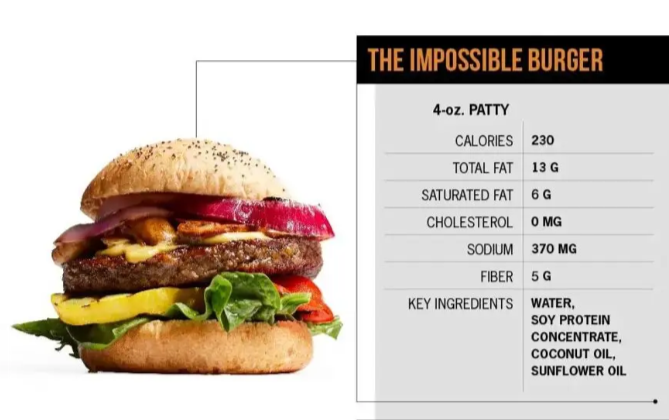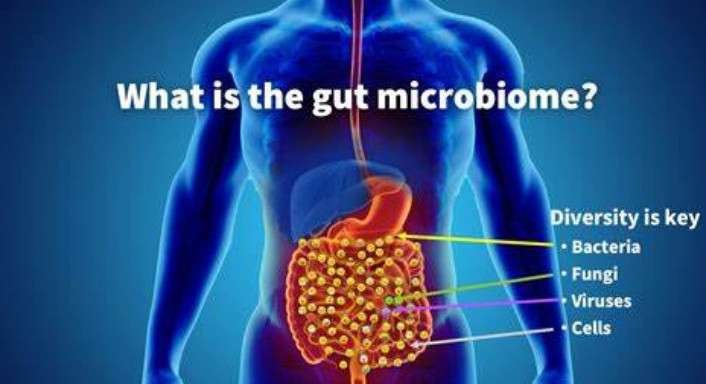Are Plant-Based Burgers Healthy – Semblance Of Better Nutrition
Are Plant-based burgers healthy? They sure have become a big deal lately. You can’t walk into a grocery store or a fast-food joint without seeing these meatless marvels on the menu. So, what’s the buzz all about? 
Are Plant-Based Burgers Healthy?
The food industry has seen a significant shift towards plant-based options. But, are plant-based burgers healthy? People are becoming more health-conscious, environmentally aware, and ethically minded.
This change isn’t just a fad—it’s a movement. Consumers aren’t just looking for alternatives. my friend. They’re demanding them, pushing companies to innovate and expand their offerings.
There are a ton of plant-based burgers available now. From supermarket staples to gourmet restaurant creations, the range is pretty impressive. You’ve got everything from soy and pea protein patties to burgers made with black beans, quinoa, mushrooms, or even beets. These varieties cater to different tastes, dietary needs, and preferences. But, are their nutritional benefits bake-in to this phenomena?
Nutritional Profile
Understanding What’s Inside
Checking out the nutritional profile of plant-based burgers is key to understanding if they’re the right choice for your diet. So, let’s break it down. Most plant-based burgers use ingredients like soy, peas, beans, lentils, and various grains.
These foods are naturally high in protein, fiber, and essential vitamins and minerals. But not all patties are created equal.
Comparing Plant-based to Traditional Burgers
Comparing plant-based burgers to traditional beef ones shows some interesting differences. While beef burgers pack a punch with protein and iron, they often come with higher levels of saturated fat and cholesterol.
Plant-based options usually have less saturated fat and zero cholesterol, which is a win for your heart.
Micro and Macro-Nutrients
Plant-based patties also offer a nice balance of macronutrients like protein, fats, and carbohydrates, depending on the ingredients. Many also come loaded with micronutrients, including vitamins B12, D, and different minerals like zinc and iron.
Keep an eye on the sodium content, though. Some brands add quite a bit of salt to enhance flavor. 
Consider the Caloric Content
Calorie count is another thing to consider. Some plant-based burgers might be lower in calories compared to traditional beef burgers, while others could be more or less the same. It all comes down to the ingredients and portion size. So, reading the label is crucial. On the other hand, there are a few healthbenefits.
Health Benefits of Plant-Based Burgers
Swapping out your regular burger for a plant-based one might just do wonders for your health. Here’s why.
Excellent fot Heart Health
First up, these burgers often come with less cholesterol and saturated fat, excellent for heart health. Eating more plant-based foods has been linked to lower cholesterol levels, making it a smart move for those keeping an eye on their heart.
Perfect for Digestive Health
Next, plant-based burgers can be fantastic for your digestive health. The fiber content in things like beans, quinoa, and lentils keeps your digestion running smoothly. Plant-based options usually have more fiber compared to their meaty counterparts.
Wonderful for Weight Management
Now, let’s talk weight management. If you’re trying to keep your weight in check, plant-based burgers can be a solid choice. They’re often lower in calories and higher in protein, which helps you feel full longer and can curb overeating.
Attributes to Better Overall Health
Beyond that, consuming more plant-based foods contributes to an overall balanced diet, potentially helping with blood pressure regulation and reducing the risk of conditions like type 2 diabetes. However, there may be potential drawbacks.
Potential Drawbacks and Concerns
While plant-based burgers come with a bunch of benefits, it’s essential to be aware of the potential drawbacks. Not all that glitters is gold, right? So, let’s get real about what to watch out for. For example, consider these possibilities:
Too Much Processed Ingredients
Some burgers pack in a lot of processed ingredients and additives. These might extend shelf life or enhance flavor but aren’t always the best for your health. Check the ingredient list. The shorter and more recognizable it is, the better. 
Contain Soy and gluten Allergens
Allergens are another concern. Soy and gluten are common ingredients, and these may be problematic for people with allergies or sensitivities. Careful label reading is a must here, especially if you have dietary restrictions.
Lack of Essential Nutrients
Nutritional completeness is another issue. Some plant-based burgers might lack certain essential nutrients found in meat, like vitamin B12, heme iron, and omega-3 fatty acids. Look for fortified options or consider supplements if you’re going vegan or vegetarian.
On my quest for a healthier lifestyle, I opted for the plant-based burgers versus McDonald’s or Wendy burgers. In fact, I’m not gonna lie, I am a regular fan of the Impossible Burger.
I have my “Impossible” just about every week, even though there has been backlash lately about othese burgers being over-processed. However, they have less calories and way less sodium content than regular burgers.
High Sodium Content
High sodium content is a frequent complaint. Many plant-based burgers include added salt to boost flavor, which can add up quickly. Too much sodium isn’t great for blood pressure, so it’s worth selecting low-sodium options when possible. So, do your own research before making a decision.
Making Informed Decisions
Are Plant-Based Burgers Right for You?
Whether plant-based burgers are a good fit for you depends on your personal dietary needs and health goals. Taking stock of what you need nutritionally will help make this decision easier. So, read your labels assiduously okay?
Read the Labels
Reading labels is your best tool here. Look at the ingredient list to ensure you’re not consuming unnecessary additives or allergens. Compare nutritional information—most brands offer detailed breakdowns on packaging. 
Consult a Professional
Expert opinions is also insightful. Dietitians and nutritionists provide personalized advice based on your health profile. It’s always a good idea to consult a professional if you’re making significant dietary changes. Stay healthy and get on that next cruise.
https://amzn.to/4eyPZ6Q
https://amzn.to/3BwRDY4
Final Thoughts
Sustainability and Ethics
Besides health factors, don’t overlook sustainability and ethics. Plant-based burgers have a smaller environmental footprint compared to meat-based ones. Reducing meat consumption can contribute to less greenhouse gas emissions and lower water usage, making it a win for the planet.
Founder & CEO
(w) mybluegenes.com
(e)rachele@mybluegenes.com







Thank you for another informative site. Where else could I get that kind of info written in such an ideal way? I have a project that I am just now working on, and I’ve been on the look out for such information.
Hi there, my friend.
First, you can google “plant-based restaurants” or try whole food stores. For example, we have a “Sprouts” in your local community.
Also, Burger King has a “Impossible Burger” you can try out. However, it’s not for everyone. I tend to enjoy them about twice a month.
Also, give “Instacart” a swirl. They cater to a whole foods Plant-Based shopper. You can have healthy foods delivered to your door. Let me know how it goes.
Happy Holiday!
Rachele